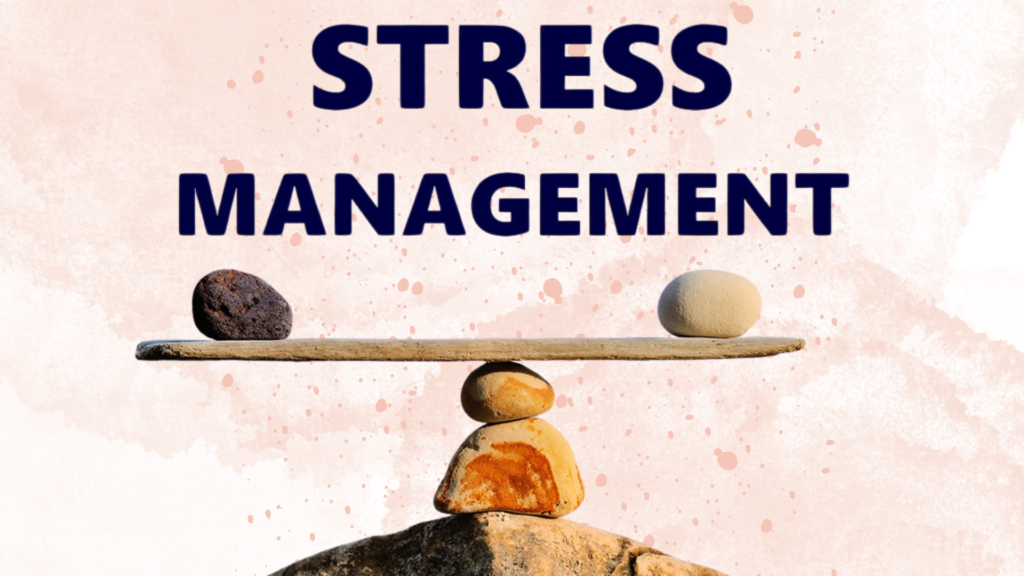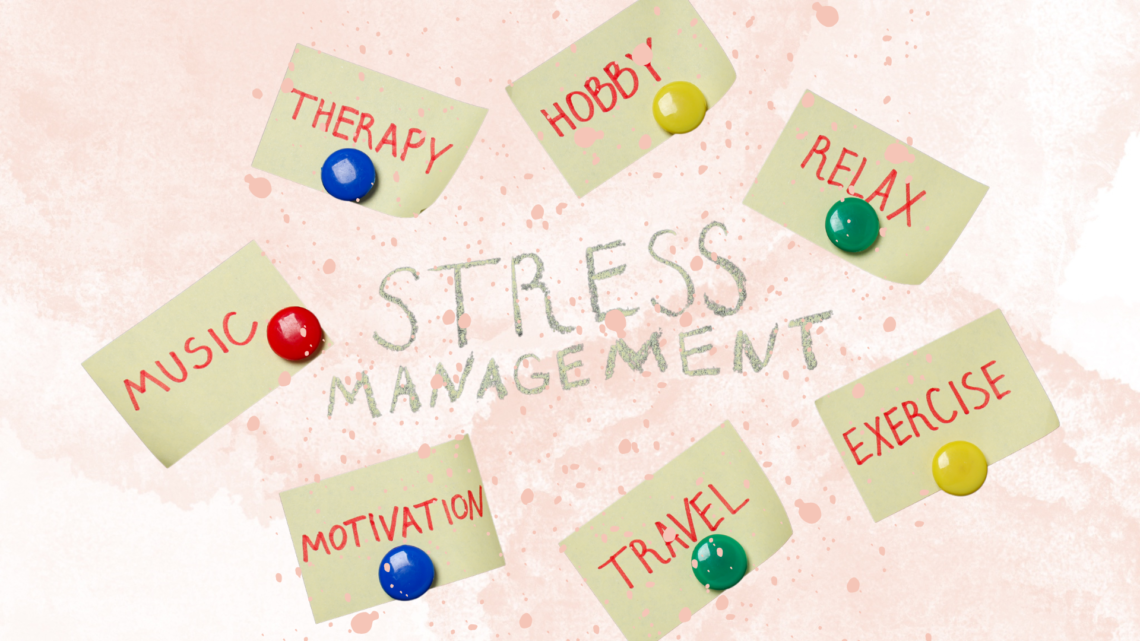Effective stress management tips is essential for maintaining overall well-being and preventing health issues such as anxiety, high blood pressure, and fatigue. Stress is an inevitable part of life, but chronic stress can take a toll on both your physical and mental health. From increasing the risk of heart disease and high blood pressure to weakening the immune system and causing digestive issues, stress can negatively impact your overall well-being. The good news is that effective stress management techniques can help you maintain a healthier body and mind.
In this article, we’ll explore six practical and scientifically proven stress management tips that you can incorporate into your daily routine for a happier, healthier life.
Stress Management Tips

Practice Mindful Breathing
Practice mindful breathing means focusing on slow, deep, and intentional breaths to promote relaxation and mental clarity. This technique helps reduce stress, improve concentration, and enhance overall well-being by bringing awareness to the present moment.
Why It Works
Mindful breathing helps activate the parasympathetic nervous system, which counteracts the body’s stress response. By slowing down your breath, you signal your brain to relax, leading to a decrease in heart rate and blood pressure. Controlled breathing techniques also enhance focus and mental clarity while reducing symptoms of anxiety and stress.
How to Do It
- 4-7-8 breathing practice: Breathe in intensely for 4 seconds, grasp for 7 seconds, and breathe out gradually for 8 seconds. This method helps to calm the nervous system and promote relaxation.
- Box breathing: Inhale for 4 seconds, hold for 4 seconds, exhale for 4 seconds, and hold again for 4 seconds before repeating.
- Diaphragmatic breathing: Focus on breathing deeply from the belly rather than the chest. This method maximizes oxygen intake and relaxes the body.
- Guided breathing exercises: Apps like Headspace or Calm provide step-by-step breathing guides to assist in stress relief.
2. Engage in Regular Physical Activity
Engage in regular physical activity means participating in consistent exercise or movement to improve overall health and well-being. This includes activities such as walking, jogging, cycling, strength training, or yoga, which help boost energy levels, enhance mood, and support physical fitness.
The Science Behind Exercise and Stress
Physical movement is one of the utmost operative way to fight stress management tips. Exercise releases endorphins—hormones that promote feelings of happiness and well-being—while reducing cortisol and adrenaline levels. Additionally, movement provides a natural distraction from stressful thoughts, improving overall mood and cognitive function.
Best Workouts for Stress Relief
- Yoga and stretching: Combines physical movement with deep breathing, helping to release tension and increase relaxation.
- Cardio workouts (running, cycling, swimming): Boosts heart health, releases endorphins, and improves stamina.
- Strength training: Enhances resilience by building both physical and mental strength.
- Dancing: Elevates mood by combining movement with music, offering both social and emotional benefits.
- Outdoor activities (hiking, walking in nature): Exposure to fresh air and sunlight has a calming effect on the nervous system.
3. Get Quality Sleep
Get quality sleep means ensuring sufficient and restful sleep to support overall health and well-being. This involves maintaining a consistent sleep schedule, creating a comfortable sleep environment, and practicing good sleep hygiene to improve energy levels, mood, and cognitive function.
Importance of Sleep for Stress Management Tips
Lack of sleep can significantly increase stress levels, leading to heightened irritability, poor concentration, and a weakened immune system. Deep, restorative sleep is essential for processing emotions and restoring cognitive function.
Tips for Better Sleep
- Maintain a consistent sleep schedule: Going to bed and waking up at the same time each day regulates your body’s internal clock.
- Create a bedtime routine: Engage in calming activities such as reading, meditation, or taking a warm bath before sleep.
- Limit screen time: Reduce exposure to blue light from electronic devices at least an hour before bed to prevent melatonin disruption.
- Use sleep-enhancing scents: Essential oils like lavender and chamomile promote relaxation.
- Avoid caffeine and heavy meals at night: Stimulants and large meals can interfere with sleep quality.
4. Maintain a Balanced Diet
Maintain a balanced diet means consuming a variety of nutritious foods in appropriate proportions to support overall health. This includes eating fruits, vegetables, whole grains, proteins, and healthy fats while limiting processed foods, excessive sugar, and unhealthy fats.
How Nutrition Affects Stress
A well-balanced diet can have a profound effect on how your body manages stress. Nutrient-dense foods help stabilize blood sugar levels, improve gut health, and regulate neurotransmitters that influence mood.
Best Foods to Reduce Stress
- Omega-3-rich foods (salmon, flaxseeds, walnuts): Reduce inflammation and support brain function.
- Dark chocolate: Contains antioxidants and compounds that promote the release of endorphins.
- Magnesium-rich foods (spinach, bananas, almonds): Help relax muscles and regulate stress hormones.
- Herbal teas (chamomile, green tea, peppermint): Provide calming effects and aid digestion.
- Fermented foods (yogurt, kimchi, kefir): Improve gut health, which is linked to mental well-being.
5. Stay Connected with Loved Ones
Stay connected with loved ones means maintaining regular communication and meaningful relationships with family and friends. This can be done through in-person meetings, phone calls, video chats, or messages, helping to provide emotional support, reduce stress, and enhance overall well-being.
Social Support and Stress Reduction
Human connection plays a crucial role in stress management. Social interactions trigger the release of oxytocin, a hormone that promotes feelings of trust and reduces stress. Maintaining strong relationships enhances emotional support and helps in coping with life’s challenges.
Ways to Strengthen Relationships
- Schedule regular check-ins: Plan weekly catch-ups with friends or family to stay emotionally connected.
- Join a community: Participate in clubs, support groups, or online communities that align with your interests.
- Practice active listening: Show empathy and understanding when engaging with others.
- Express gratitude: Regularly acknowledge and appreciate the people in your life to build stronger bonds.
- Engage in group activities: Volunteering, team sports, or creative workshops foster a sense of belonging.
6. Practice Relaxation Techniques
Practice relaxation techniques refers to engaging in activities or methods that help reduce stress and promote a state of calm. These techniques often involve deep breathing, meditation, progressive muscle relaxation, or guided imagery to relax the mind and body, alleviate tension, and improve overall well-being.
Effective Relaxation Methods
Stress management tips help reduce muscle tension, lower stress hormone levels, and improve overall mental well-being.
- Meditation: Encourages mindfulness and reduces negative thought patterns.
- Journaling: Writing down emotions helps process stress and gain perspective.
- Aromatherapy: Scents like lavender, peppermint, and eucalyptus promote relaxation and reduce stress.
- Listening to calming music: Soft instrumental, classical, or nature sounds soothe the nervous system.
- Progressive muscle relaxation: Involves tensing and then releasing different muscle groups to relieve tension.
Final Words
Stress is a part of life, but it doesn’t have to control you. By incorporating mindful breathing, regular exercise, quality sleep, a healthy diet, strong social connections, and relaxation techniques into your daily routine, you can effectively manage stress and improve your overall well-being. Implementing these strategies consistently can lead to long-term health benefits, including lower blood pressure, improved mood, and increased productivity.
Let us know in the comments! Which of these methods do you find most cooperative?
FAQ‘s
Q: What is the fastest way to relieve stress?
A: Deep breathing and mindfulness meditation are quick ways to calm your mind and reduce stress instantly. Engaging in physical movement, such as a short walk or stretching, can also help relieve tension quickly.
Q: How does stress affect the body?
A: Chronic stress can lead to high blood pressure, weakened immunity, digestive issues, headaches, muscle tension, and mental health problems such as anxiety and depression.
Q: What foods help reduce stress?
A: Foods rich in omega-3, antioxidants, and magnesium, such as nuts, berries, leafy greens, dark chocolate, and herbal teas, help lower stress levels naturally and promote relaxation.








Leave a Comment